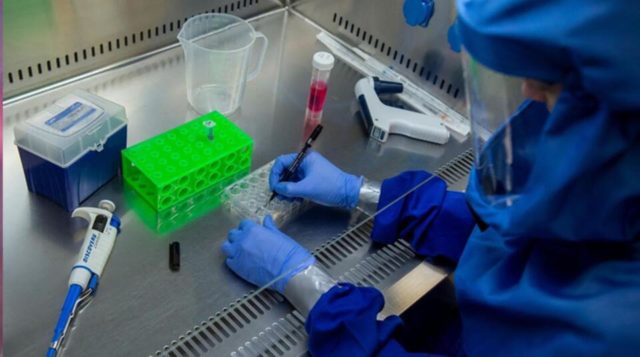Prof Abdool Karim points out that despite the drive to ensure that vaccines are secured timeously, there is still no empirical evidence whether vaccines are effective against the new variant
SCIENTISTS working on the Covid-19 pandemic have expressed concerns about the behaviour of the disease’s new variant and how it would respond to a vaccine and impact the rate of reinfections.
On Monday night, the Health Department hosted a panel discussion of experts on the 501Y.V2 variant and its impact on South Africa’s efforts to combat the massive spread of the virus during the second wave of infections.
Epidemiologist and chair of the ministerial advisory committee (MAC) on Covid-19, Professor Salim Abdool Karim, pointed out that despite the drive to ensure the vaccines were secured timeously, there was still no empirical evidence whether vaccines were effective against the variant, which has been responsible for most of the spread in the coastal parts of SA, including the Western Cape, Eastern Cape and KwaZulu-Natal.
The new variant has been found to be 50% more transmissible than the previous variant of the first wave.
Abdool Karim pointed out, however, that the new variant was not more severe than the one which was responsible for the first wave in the country.
“The current data indicates that the virus is not causing more severe disease but it is putting huge pressure on hospitals. We may see in due course an increase in deaths just from the lack of hospital beds and the pressure in the health care system,” he said.
As of Monday night, SA had recorded 1,346,936 positive cases, with 9,010 new infections and 344 new deaths, taking the death tally to 37,449.
Abdool Karim said the new Covid-19 variant had been discovered by a team of SA scientists to have since had 23 mutations and that it has since spread throughout the coastal region.
“We don’t yet have the sequences from the rest of the country but as soon as we have, we will be able to plot how it is spreading through our country,” he said.
He said one of the earliest studies on the variant, done using free energy perturbation, has shown how the binding of the virus to the human cell had changed significantly.
“What he noted is that the virus and the spike protein now rotates about 20 degrees so that it is able to approach more deeply into the binding site, so that its ability to bind to the human cell is now stronger, and that is what enables to become a more efficient virus in the way it transmits,” he said.
While people were understood to get immunity once infected, the Chair of Virus-Host Dynamics at Wits University, Professor Penny Moore, said there was strong indication that the virus had managed to evade neutralising antibodies which stopped the body from infecting the cell.
“We do now have very compelling data both from our labs and across the world to support the fact that these mutations are problematic. In our lab we have seen a cohort of nearly 50 individuals and half of them when you test the blood from people who were infected in the first wave, you find that in 50% of cases there is no longer any recognition of the new variant,” Moore said.
The second wave of infections has now been found to have risen to almost double than the first wave in the Western Cape, and Abdool Karim said this impacted hospitalisation by more than double.
He pointed out that there was still no evidence that the Covid-19 vaccines were effective against the 501Y.V2.
“Many scientists across the world are working on this. I am in direct communication with several of them. We don’t yet have an answer. We are expecting an answer pretty soon and there is much to speculate on this, but we want to see the actual data but it is not yet available,” he said.
He also indicated while the vaccines had been found to be effective in reducing clinical illness and hospitalisation, there were still many unknowns about them.
He said it would take a long time to find answers on whether the vaccines were free of long-term side effects or if they prevented asymptomatic infections or viral spread among those vaccinated.
He, however, stressed that these were not reasons for hesitation in using the vaccines as they were saving lives.
“What I am saying is that the vaccine roll-out is not going to be easy or quick. It is a mammoth logistical task that is going to need all hands on deck,” he said.
Virologist Professor Alex Sigal said it was becoming clear that the world had underestimated the virus.
“This virus can evolve and adapt,” he said.
Health Minister Zweli Mkhize hailed SA scientists for their work and being on the leading edge on the genomic and surveillance response.
He pointed out that there were some promising signs of decline in transmission, including a 22% decrease on Sunday from a previous week.
– Political Bureau








